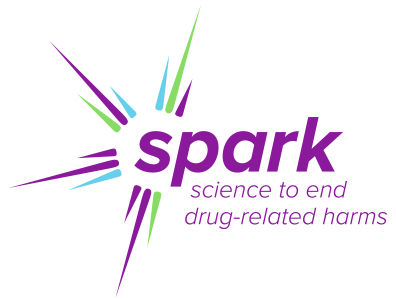Eligibility for a TADA Fellowship is open to Emory doctoral students who…
- are enrolled – in good standing – in one of the following programs:
- RSPH: Behavioral, Social, and Health Education Sciences
- RSPH: Health Policy and Management
- RSPH: Global Health
- RSPH: Epidemiology (Social)
- Psychology
- Sociology (Health)
- Economics (Health)
- Anthropology (Health)
- have passed comprehensive exams, or plan to complete in the near future.
- have an outstanding record of academic accomplishment, and an established history of engagement in research and interventions into SUDs or related harms (e.g., overdose, HIV, HCV).
- are committed to a research career applying advanced data analysis methods to study and intervene in SUD-related harms.
- are in-residence during the first year of fellowship.
- and are a US Citizen or Permanent US Resident.
How are TADA Fellowships funded?
- TADA is funded by a training grant (T32DA0505552; PI: Cooper and Waller) from the National Institute on Drug Abuse (NIDA) for the purpose of developing the careers of promising junior researchers.
- TADA is also funded by Spark @ Emory, the Rollins Program in Substance Use Disorders.
Students accepted into the TADA Fellowship Program are required to participate in all TADA training activities, including:
1. Required Courses (Click here for details on all TADA Courses)
| BSHES 735 TADA: Reducing Drug-Related Harms Using “Big Data”: Administrative, Geospatial & Network Sources | 3 credits, Spring Semester |
| BSHES 740 TADA: Reducing Drug-Related Harms Using Internet-Based “Big Data”: Machine Learning and AI Methods | 3 credits, Fall Semester |
| BSHES 745 TADA: Professional Development, Current Topics and Dissertation Workshop course | 1 credit/semester, 4 total required |
| Two advanced, graduate-level courses in chosen track, approved on case-by-case basis by TADA leadership. (Tracks include: Geospatial Analysis; Analyzing large administrative databases; Machine Learning; Genetic and Environmental Influences and Interactions; Social networks) | Min. 4 credits (2 credits each) required |
2. Individual Development Plan (IDP)
- TADA Fellows are required to set academic and professional goals for his/her fellowship training.
- IDP is part of the fellow’s professional responsibility to chart goals and success in the TADA program and assist with ensuring timely progress.
- You will receive a TADA-Specific template for the IDP
- Within 2 months of starting the TADA fellowship, the TADA fellow should:
- Complete a first draft of the IDP
- Meet and discuss the IDP with TADA mentors. Schedule one meeting with both TADA mentors and directors present.
- Revise the IDP as necessary after meeting with mentor(s).
- Sign and submit the completed IDP to TADA program manager within 3 months of starting the TADA fellowship
- IDPs are reviewed by the Program Directors every 6 months thereafter – beginning of academic year and at mid-year (Jan/Feb)
- Funds expenditure/balance also discussed at 6-month review
3. Mentoring
- TADA co-directors will match each trainee with 2 TADA-Certified mentors:
- One with substantive expertise in SBS approaches to studying or intervening in SUD-Related harms,
- the other with expertise in an advanced data science methods.
- TADA training in Menteeship
4. Regularly scheduled meetings to advance scholarship & professional development
- Bi-weekly dissertation and professional development workshops
- Journal clubs (3-4 per semester)
- Annual research symposium
- Bi-annual distinguished visitor lecture
5. Dissertation Submission
-
At least One Aim must focus on big data science + One (or same) Aim on a drug-related outcome.
6. Mentored Research
- In addition to coursework, for four semesters, all students will serve as Graduate Research Assistants (GRAs) with a faculty mentor to gain hands-on SBS research experience.
- Summer Research Rotation at a public health agency
7. Trainee Funds
Each funded trainee has access to:
- up to $3,000/year to support dissertation-related research and training expenses.
- $1,000/year in travel funds.
- $3,000/year in reimbursement for eligible childcare costs.
*Within each track students will be required to earn a grade B or above in two advanced, graduate-level courses in that method (minimum of 2 credits each), dedicate at least 75% of their Emory-based research rotations to that track and dedicate a summer rotation to that track.
